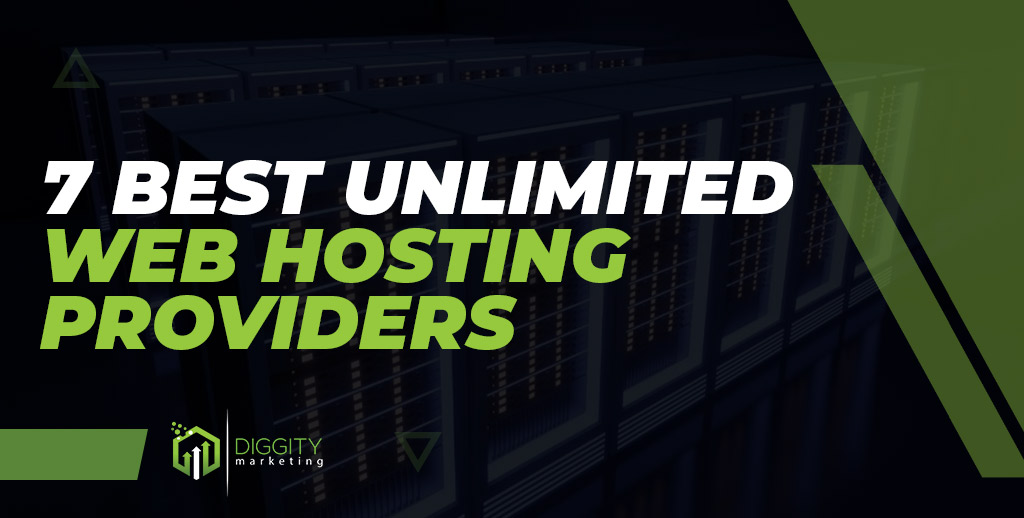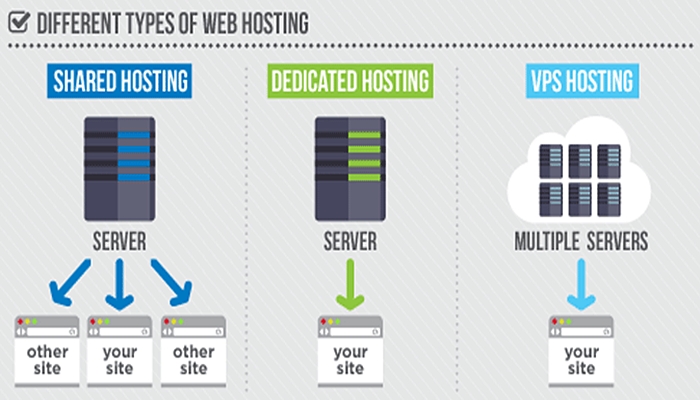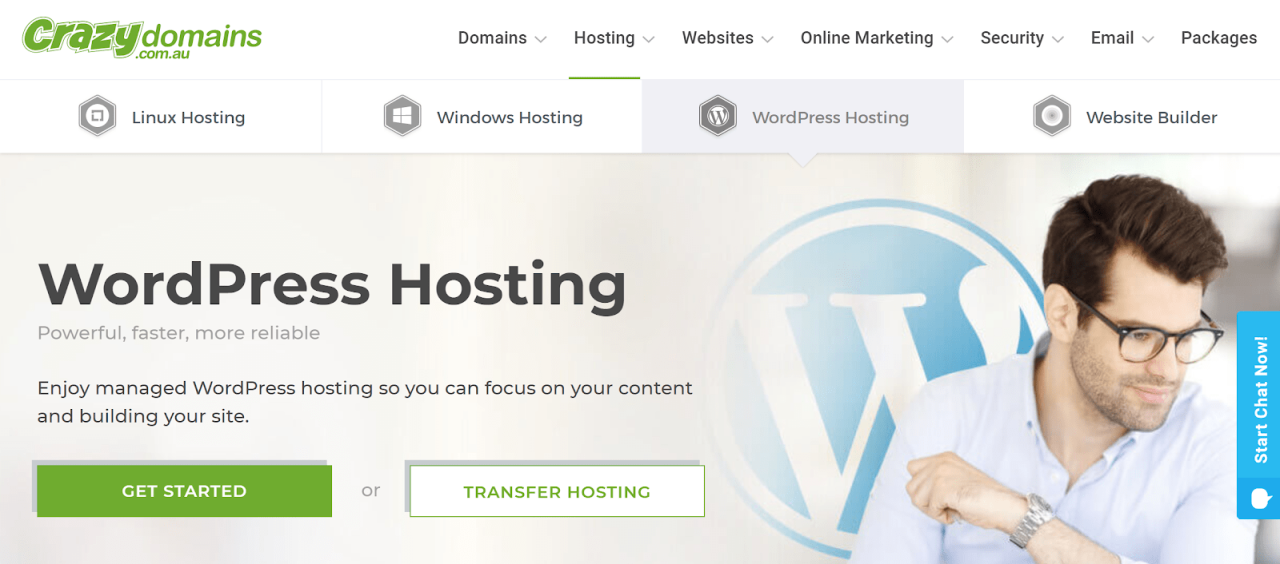Unlimited website hosting, a seemingly magical concept, promises endless resources for your online presence. But how much truth lies behind the “unlimited” claim? This guide delves into the world of unlimited hosting, uncovering its benefits, limitations, and potential pitfalls. We’ll explore the various types of unlimited plans, examine real-world use cases, and ultimately help you determine if unlimited hosting is the right choice for your website.
Understanding the nuances of unlimited hosting is crucial. While the term “unlimited” often evokes images of boundless resources, it’s essential to recognize that there are limitations and caveats. This guide aims to demystify these complexities, empowering you to make informed decisions about your website’s hosting needs.
Understanding Unlimited Website Hosting

Unlimited website hosting is a popular choice for website owners looking for a flexible and scalable solution. As the name suggests, unlimited hosting plans offer seemingly limitless resources, allowing you to host multiple websites, store vast amounts of data, and receive unlimited bandwidth. However, it’s essential to understand that “unlimited” isn’t always as straightforward as it seems.
Common Misconceptions About Unlimited Hosting
It’s important to dispel some common misconceptions surrounding unlimited hosting plans. While they may offer a seemingly limitless amount of resources, there are usually limitations in place.
- Resource Limits: While advertised as “unlimited,” most hosting providers impose hidden resource limits. These limits might apply to CPU usage, RAM allocation, or the number of simultaneous connections. While these limits are rarely explicitly stated, they are often enforced to ensure fair resource allocation among all users.
- Shared Resources: In shared hosting environments, resources are shared among multiple users. This means that if one website experiences a surge in traffic, it can impact the performance of other websites on the same server.
- Fair Use Policy: Most hosting providers have a fair use policy in place to prevent abuse. This policy might restrict the use of resources for activities like excessive file storage, sending spam emails, or running resource-intensive scripts.
Examples of “Unlimited” in Hosting Plans
“Unlimited” in hosting plans typically refers to specific resources like:
- Disk Space: Unlimited disk space allows you to store a large amount of data on your server, such as website files, images, videos, and databases. However, this doesn’t necessarily mean you can store an unlimited amount of data. Most providers have a “fair use” policy in place, which may restrict the amount of disk space you can use.
- Bandwidth: Unlimited bandwidth allows you to transfer large amounts of data to and from your server without restrictions. However, some providers may impose limits on the amount of data you can transfer during peak hours.
- Email Accounts: Unlimited email accounts allow you to create as many email addresses as you need for your website. However, there may be limits on the amount of storage space available for each email account.
Benefits of Unlimited Website Hosting

Unlimited website hosting offers a range of advantages for website owners, particularly those with growing websites or high traffic expectations. By providing ample resources, it allows for seamless website performance and scalability, ultimately contributing to a better user experience and potential business growth.
Unlimited Storage and Bandwidth
Unlimited storage and bandwidth are crucial for website performance and scalability. They enable websites to handle increased traffic and data demands without encountering limitations or slowdowns.
- Larger File Sizes: Unlimited storage allows website owners to upload large files, such as high-resolution images, videos, and documents, without worrying about storage limitations. This is essential for websites that rely on rich media content to engage visitors.
- Increased Traffic Handling: Unlimited bandwidth ensures that websites can handle large amounts of traffic without experiencing slow loading times or outages. This is crucial for websites experiencing rapid growth or seasonal spikes in traffic.
- Enhanced User Experience: Fast loading times and smooth performance contribute to a positive user experience. Visitors are more likely to stay on a website that loads quickly and functions seamlessly, improving engagement and conversion rates.
Cost Savings
Unlimited hosting plans can offer significant cost savings compared to traditional hosting packages with limited resources. By eliminating the need to constantly upgrade storage and bandwidth, website owners can save money in the long run.
- Predictable Costs: Unlimited hosting plans provide a predictable monthly cost, eliminating the risk of unexpected overage charges or the need for costly upgrades. This makes budgeting easier and allows website owners to focus on other aspects of their business.
- Eliminate Upgrade Costs: With unlimited hosting, website owners avoid the expense of upgrading their hosting plan as their website grows. This eliminates the need for costly migrations and downtime associated with plan changes.
- Long-Term Savings: Over time, the cost savings associated with unlimited hosting can add up significantly, especially for websites with growing traffic and data demands. This can free up resources for other business investments or marketing efforts.
Factors to Consider When Choosing Unlimited Hosting
While the allure of unlimited resources is tempting, it’s crucial to delve deeper and understand the nuances involved. Selecting the right unlimited hosting plan requires careful consideration of various factors to ensure it aligns with your website’s needs and long-term goals.
Understanding Resource Limitations and Usage Policies
Although the term “unlimited” suggests limitless resources, there are often inherent limitations and usage policies associated with unlimited hosting plans. It’s essential to thoroughly review the provider’s terms of service to understand these limitations.
For instance, a provider might specify a maximum number of inodes (file system entries) or limit the amount of disk space used by a single website.
Understanding these limitations helps you avoid potential issues later.
Types of Unlimited Hosting Plans
Understanding the different types of unlimited hosting plans is crucial for making an informed decision. Each plan offers distinct features and benefits, catering to specific website needs and budgets. Let’s explore the key types of unlimited hosting plans available:
Shared Hosting
Shared hosting is an entry-level option where multiple websites share the same server resources. It’s an affordable choice for beginners and small websites with low traffic.
| Plan Type | Features | Pros | Cons |
|---|---|---|---|
| Shared Hosting |
|
|
|
Example: HostGator’s Hatchling plan offers shared hosting with unlimited disk space, bandwidth, and email accounts, starting at $2.75 per month.
VPS Hosting
VPS hosting provides a virtualized server environment, offering more resources and control than shared hosting. It’s suitable for websites with moderate traffic and demanding applications.
| Plan Type | Features | Pros | Cons |
|---|---|---|---|
| VPS Hosting |
|
|
|
Example: Bluehost’s VPS hosting plans offer unlimited storage and bandwidth, along with dedicated resources and root access, starting at $19.99 per month.
Dedicated Hosting
Dedicated hosting provides an entire server dedicated to your website, offering maximum performance, security, and control. It’s ideal for high-traffic websites, e-commerce platforms, and demanding applications.
| Plan Type | Features | Pros | Cons |
|---|---|---|---|
| Dedicated Hosting |
|
|
|
Example: Hostwinds’ dedicated hosting plans offer unlimited bandwidth, SSD storage, and full server control, starting at $79.99 per month.
Real-World Examples of Unlimited Hosting Use Cases
Unlimited hosting offers a flexible solution for websites with varying needs, allowing them to scale their resources as their traffic and content demands grow. Let’s explore real-world examples of how different website types benefit from unlimited hosting.
Websites with High Traffic Fluctuations
Websites that experience significant traffic spikes, such as e-commerce stores during promotional periods or news websites during breaking news events, benefit greatly from unlimited hosting. This allows them to handle sudden surges in visitors without encountering performance issues or downtime. For example, an online retailer might experience a massive influx of traffic during a flash sale. With unlimited hosting, their website can handle the increased load, ensuring a smooth shopping experience for all customers.
Websites with Large Content Libraries
Websites with extensive content libraries, such as educational platforms, online magazines, or blog aggregators, often require significant storage space. Unlimited hosting provides the necessary storage capacity to accommodate their vast content libraries without encountering limitations. Imagine an online university offering a wide range of courses and learning materials. Unlimited hosting allows them to store all the videos, documents, and interactive content without worrying about running out of space.
Websites with Dynamic Content
Websites that feature dynamic content, such as forums, social media platforms, or online communities, often require high processing power and storage space to manage user-generated content. Unlimited hosting provides the resources needed to support these dynamic websites and ensure a smooth user experience. Take, for instance, a popular online gaming forum. With unlimited hosting, the forum can handle a large number of active users, their posts, and the associated data, ensuring a seamless experience for all participants.
Websites with Multiple Projects
Businesses or individuals with multiple websites or projects can benefit from unlimited hosting, as it allows them to host all their websites under one account without having to manage separate hosting plans. For example, a digital marketing agency might manage websites for several clients. Unlimited hosting allows them to host all these websites on a single platform, simplifying their management and reducing costs.
Websites with Growing Needs
Unlimited hosting is ideal for websites that are experiencing growth and anticipate future expansion. It provides a scalable solution that can accommodate their evolving needs without the need to upgrade hosting plans frequently. A startup company launching a new product might see a rapid increase in website traffic and content requirements. Unlimited hosting allows them to scale their resources as their website grows, ensuring a smooth transition and avoiding performance bottlenecks.
Potential Drawbacks of Unlimited Hosting

While unlimited hosting sounds appealing, it’s essential to be aware of potential drawbacks. These plans might not always be as limitless as they seem, and certain factors can impact performance, especially for high-traffic websites.
Performance Issues with High Traffic, Unlimited website hosting
Unlimited hosting plans can lead to performance issues, particularly for websites experiencing high traffic. This is because shared servers hosting multiple websites can struggle to handle sudden traffic surges. When multiple websites on a single server simultaneously demand high resources, the overall performance can decline, leading to slow loading times and potential downtime.
Alternatives to Unlimited Hosting
While unlimited hosting offers a seemingly convenient solution for website owners, it’s not always the best fit for every situation. Understanding the limitations and potential drawbacks of unlimited hosting is crucial for making informed decisions. There are several alternative hosting options that can be more suitable depending on specific website needs and budget constraints.
Shared Hosting
Shared hosting is a cost-effective option where multiple websites share the same server resources.
- Advantages: Shared hosting is typically the most affordable hosting option, making it ideal for budget-conscious individuals or small businesses with low-traffic websites. It’s also relatively easy to set up and manage, as the hosting provider handles most of the technical aspects.
- Disadvantages: Shared hosting can be slow and unreliable, especially during peak traffic hours, as all websites on the server compete for resources. Additionally, security can be a concern as a compromised website on the server can potentially affect other websites.
- Suitable Scenarios: Shared hosting is suitable for static websites with low traffic, personal blogs, or small business websites with limited content and visitors.
VPS Hosting
VPS hosting provides a virtualized server environment where each website has its own dedicated resources, offering greater performance and control.
- Advantages: VPS hosting offers improved performance compared to shared hosting, as websites have dedicated resources. It also provides more control over the server environment, allowing for greater customization and security.
- Disadvantages: VPS hosting is more expensive than shared hosting, and managing a VPS server requires more technical expertise.
- Suitable Scenarios: VPS hosting is suitable for websites with moderate traffic, e-commerce stores, or websites requiring more resources and control over the server environment.
Dedicated Hosting
Dedicated hosting provides a physical server dedicated exclusively to a single website, offering the highest level of performance, security, and control.
- Advantages: Dedicated hosting offers the highest level of performance and security, as the entire server is dedicated to a single website. It also provides complete control over the server environment, allowing for maximum customization and flexibility.
- Disadvantages: Dedicated hosting is the most expensive hosting option, requiring a significant upfront investment. It also requires more technical expertise to manage and maintain.
- Suitable Scenarios: Dedicated hosting is suitable for high-traffic websites, complex applications, or websites requiring maximum performance, security, and control.
Cloud Hosting
Cloud hosting distributes website resources across a network of servers, providing scalability, reliability, and flexibility.
- Advantages: Cloud hosting offers scalability, allowing websites to dynamically adjust resources based on traffic demands. It’s also highly reliable, as resources are distributed across multiple servers.
- Disadvantages: Cloud hosting can be more expensive than traditional hosting options, especially for websites with high traffic or resource requirements.
- Suitable Scenarios: Cloud hosting is suitable for websites with fluctuating traffic, high-performance applications, or websites requiring scalability and reliability.
Choosing the Right Unlimited Hosting Plan
Navigating the world of unlimited hosting plans can be overwhelming, especially with the abundance of options available. Choosing the right plan involves considering your website’s needs, budget, and future growth potential. A well-informed decision can ensure your website enjoys optimal performance, reliability, and scalability.
A Step-by-Step Guide for Choosing the Best Unlimited Hosting Plan
To make an informed decision, follow these steps:
- Assess Your Website’s Needs: Determine the specific requirements of your website. Consider factors such as the expected traffic volume, storage space needed for files and databases, and the number of email accounts required. If you’re launching an e-commerce website, for instance, you’ll need more storage space and bandwidth compared to a simple blog.
- Research Hosting Providers: Explore reputable hosting providers known for their reliability and customer support. Look for providers with a proven track record, positive customer reviews, and transparent pricing structures. Check if they offer features like free website migration, website security tools, and regular backups.
- Compare Unlimited Hosting Plans: Once you’ve shortlisted a few providers, compare their unlimited hosting plans. Pay attention to the features included, such as the number of websites allowed, database capacity, and bandwidth allocation. Compare pricing and look for value-for-money offerings.
- Read Reviews and Testimonials: Get insights from other users by reading reviews and testimonials. These provide valuable perspectives on the provider’s performance, customer support, and overall user experience. Look for unbiased reviews from reputable sources.
- Consider Scalability: Choose a plan that allows for future growth. As your website expands, you might need more resources. Ensure the plan offers scalability options, such as the ability to upgrade to a higher tier or add additional resources as needed.
- Contact Customer Support: Before committing, test the provider’s customer support. Ask questions about their services, pricing, and technical support availability. Evaluate their responsiveness, helpfulness, and expertise.
- Make a Decision: Based on your assessment, choose the unlimited hosting plan that best meets your website’s needs and budget. Consider factors like the provider’s reputation, features, pricing, and customer support.
Evaluating Hosting Providers and Plans
Here’s a checklist to help you evaluate hosting providers and their unlimited plans:
- Server Location: Consider the server location in relation to your target audience. A server closer to your visitors generally leads to faster loading times.
- Website Security: Ensure the provider offers robust security features like SSL certificates, malware protection, and regular security updates. These safeguards protect your website and visitor data from cyber threats.
- Data Backup and Recovery: Inquire about data backup and recovery policies. Regular backups ensure data safety in case of server crashes or accidental data loss. A reliable provider will offer automated backups and data recovery options.
- Customer Support: Evaluate the provider’s customer support channels and availability. Look for 24/7 support options, including live chat, email, and phone. Check their response times and expertise in resolving technical issues.
- Uptime Guarantee: A reliable provider will offer a high uptime guarantee, ensuring your website remains accessible to visitors. Look for providers with a 99.9% or higher uptime guarantee.
- Money-Back Guarantee: A money-back guarantee provides peace of mind. It allows you to test the service and get a refund if you’re not satisfied within a specific timeframe.
- Scalability Options: Consider the provider’s scalability options for future growth. Ensure they offer plans with the ability to upgrade resources or add additional features as your website expands.
Tips for Negotiating Pricing and Securing the Best Value
Negotiating pricing can be an effective way to secure the best value for your unlimited hosting plan. Here are some tips:
- Research Competitive Pricing: Compare pricing across multiple providers to get an idea of the industry standard. Use this information to negotiate a better rate.
- Explore Bundled Packages: Inquire about bundled packages that include additional features like domain registration, website security, or marketing tools. These bundles can offer significant savings compared to purchasing individual services.
- Negotiate for Longer Term Contracts: Hosting providers often offer discounts for longer-term contracts. Consider committing to a longer contract if it aligns with your website’s long-term plans.
- Look for Promotional Offers: Keep an eye out for promotional offers and discounts, especially during holidays or seasonal sales. These promotions can provide substantial savings on your hosting plan.
Last Point
Ultimately, the decision of whether or not to choose unlimited hosting boils down to your specific needs and budget. While it offers a tempting promise of endless resources, it’s crucial to understand the potential drawbacks and carefully evaluate your options. By considering the factors discussed in this guide, you can make an informed choice that aligns with your website’s growth and performance goals.
Unlimited website hosting gives you the freedom to create and grow your online presence without worrying about storage limitations. Whether you’re showcasing your stunning photography or selling unique handmade gifts , unlimited hosting ensures your website has the space it needs to thrive.
So, take the leap and unleash your creativity with the power of unlimited website hosting.




